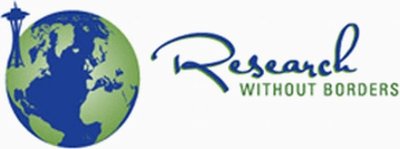October 15, 2009
What do research administrators talk about when they get together? A look at the ‘stage hands’ of academic research
When Lawrie Robertson worked as administrator of the Division of Public Health Sciences at Fred Hutchinson Cancer Research Center, he got to know a graduate student named Christopher Li. Li’s research was on breast cancer, and Robertson helped support his work at the division level.
Now Li, who went on to join the scientific staff at Fred Hutch after getting his degree, is in the news for his groundbreaking work on the disease, and Robertson has the satisfaction of having played a small part in what Li has been able to achieve.
Such is the life of a research administrator, 1,100 of whom will converge on Seattle Oct. 17-21 for the annual conference of the Society of Research Administrators, and Robertson — who now works as director of finance and administration in the School of Public Health — is one of the conference planners.
“Research administration is a very diverse field, but the common theme is, we’re all engaged in trying to support the research enterprise and seeing that the faculty are able to conduct their research in a manner that is responsive to good public stewardship and compliance,” Robertson said.
He estimates there may be as many as 2,000 research administrators employed at the UW — people who help make the research enterprise go, but who work as “stage hands” to the researchers’ star turn. They might be involved in submitting proposals, negotiating contracts, paying for lab expenses, seeing that federal regulations are adhered to, coordinating clinical trials, and much more.
The conference will draw participants not only from educational institutions but also from corporate, government and nonprofit settings in 25 countries. No wonder its theme is “Research Without Borders.”
International research is becoming increasingly common, Robertson said. He serves on the Global Support Project for the University, which he said has been “designed to support research administrators worldwide in making sure they’re in compliance with local laws and requirements while they’re carrying out the research in that foreign country and to reduce the risks of engagement for students, faculty and staff.”
What do research administrators talk about when they get together? That depends on which administrators you mean. There are eight different tracks offered at the conference, from Sponsored Programs Administration to Financial Management to Global Research. Attendees can enroll in certificate programs such as Research Law or Clinical Trials Management. And of course there is the chance to hear from experts such as keynoter Anthony “Bud” Rock, who retired from the State Department as acting assistant secretary for science, technology, environment and health affairs. He is currently vice president for global engagement at Arizona State University. His talk is titled Internationalizing Science and Technology: From Discovery to Diplomacy.
Research administrators at the UW are active in the Pacific Northwest chapter of the Society of Research Administrators. Quarterly meetings with relevant programs draw up to 75 people, Robertson said.
Many UW people are involved in leading sessions at the conference. In fact, Michael DeShazo, a budget analyst in Research Accounting and Analysis; Lynne Chronister, assistant vice provost for research; and Robertson will all be leading more than one.
Chronister will be picking up The Rod Rose Award at the conference — as the co-author of the article judged by the editorial board as the most outstanding contribution to the Journal of Research Administration this year. The article, “Laboratory Management Institute: A Model for the Professional Development of Scientists,” is based on a program the article’s authors started at UC Davis. Chronister’s co-authors and co-winners of the award are John Galland, of the Office of Research Integrity; and Jade McCutcheon, of UC Davis.
Robertson said that probably most research administrators move into the role more by happenstance than plan, since there are only two programs in the country that actually offer a degree in the field. His own degrees, for example, are in social work and business administration. And that’s why conferences such as this one are especially important.
“I evolved into being a research administrator, and throughout that process I was looking for ways I could increase my network of subject experts who could help me to answer fundamental and challenging problems,” Robertson said. “I found that a professional society was a way to do that because the people who are conducting the training are peers and colleagues who are on a daily basis engaging in the same kinds of problems that I am.”
Beyond that, he just likes his colleagues. “They aren’t out there to get rich,” he said. “What they do has to matter to them, and if it didn’t they probably wouldn’t be attracted to the field.”
To learn more about the conference, click here.



